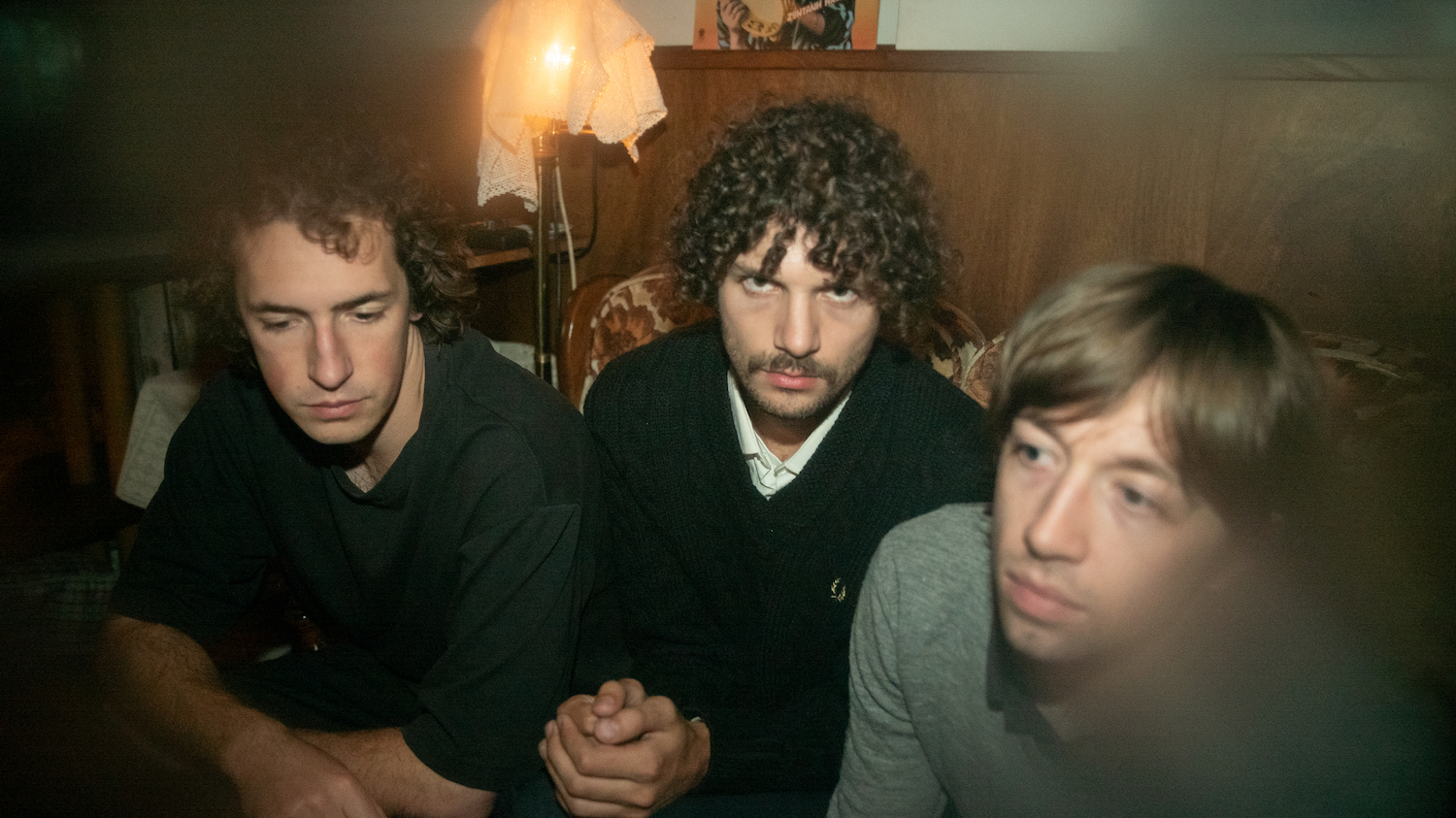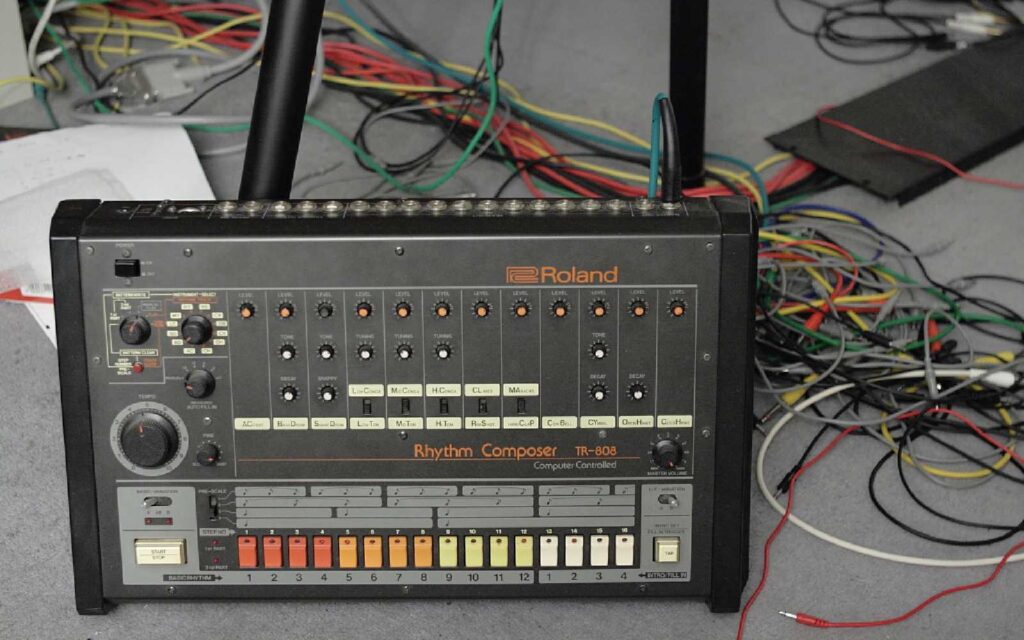Melbourne band Convenience Store has released their debut record Tabis, a DIY record born from their basement studio.
Convenience Store are doing it themselves, and while they concede their path to finishing music might take a few twists and turns, having the freedom to take their time and explore sounds themselves is the way to go.
Catch up on all the latest features and interviews here.
Albeit with a workflow defined by trial and error, their single “Tabis (Walk Me Through The Night)” combines crunchy, vintage sounding drums with guitars and vocals settling themselves into an atmospheric space, creating a unique atmosphere that precedes their debut album Tabis, which was released in September.
We caught up with Nick and Jack from the band about recording, producing and mixing it themselves. “We’ve always done it this way,” they explain. “Like since we started doing [the band], it feels more creatively fulfilling,” says Nick.
The guys explain they’ve been recording music longer than they’ve been playing live. They acknowledge they wouldn’t know how to do a “professional” session. “We’ve got our own idiosyncratic workflow, we can just keep re-doing things, there’s no real cost, ‘cause it’s all digital,” Nick says.
“It’s all so linked to the way we make music. Going to a studio, you’re tracking a song that you’ve played live heaps and you know the song, where we’re kinda working it out as we record it,” Jack states, and Nick agrees, adding, “We’re not so interested in capturing performance as we are texture, and I guess you need control of production in order to do that.”
In this sense, Convenience Store are producing as they go, adding parts and removing them until it feels right.
“It’s very back and forth,” explains Jack. “Like we’ll have the song down, and think ‘Oh, we need something else’, and then that ‘something else’ will become a fundamental part of what that song is. Not really like producing and tracking and then sending off to mix— we’re doing the mix and integrating an element into the mix at the eleventh hour.” Jack laughs.
In this sense, Jack and Nick roll into the recordings with an open mind, though a lot of the time, there’s an expectation in their head. The results being right or wrong, or nailing the sound or not, is where things differ, and they’ll either go back to the drawing board or pursue this newfound sound or idea.
The guys cite Frank Ocean’s Blonde here, explaining that apparently Frank would record many versions of a track in the pursuit of finding the best version. Sometimes exploring and eliminating the wrong ideas is as important as finding the right one.
“It’s definitely my approach, going into things and seeing what happens. Like there’s some sense in your head of what you’re trying to achieve, and this is what happens when you record your own stuff, is you don’t have the skills to execute something exactly as you’ve planned it,” Jack smiles.
The addition of an outside engineer hinders Convenience Store’s ability to find happy accidents; the irony of a “quote, unquote” professional is that they’re there to nail whatever you want to achieve.
Because of all this, the band mixes as they go, pushing sounds to their limit to make sure it’s either the sound they’re after, or the happy accident has been a success. They’re shaping and refining, and finding space for every element that comes along as it happens.
“Our mixing procedures are probably our most technically deficient part of the workflow,” Nick says. “We’ll be mixing a song, and we’ll realise it’s not going to be saved by the mix. So we’ll have to go back and — maybe arrangement parts aren’t working, or it’s the opposite, where we have an idea that shouldn’t work, and you can mix it in a way that isn’t conventional. So the song will inevitably sound more novel and fresh.”.
Jack continues, adding that they’ll work towards a preliminary, rough mix, so they can see how it all fits together in the pursuit of finding what the song is lacking or missing.
This ability to have an overview of the song, rather than diving into expensive days at a recording studio, allows Convenience Store the freedom to explore their songs, admitting that their first instinct isn’t always right.
“We have this naivety where we can keep tinkering, keep trying different things. So it becomes fully formed in an organic way, rather than starting with a plan.”
This aside, Nick and Jack also acknowledge that they sometimes need a deadline, fearing they could adjust and tinker endlessly. To remedy this, the guys will send the songs to Convenience Store’s members, primarily live members, who aren’t as involved in the writing and producing process for an unbiased, third-party opinion.
Moving into the live element of the band, Nick and Jack admit that there’s no thought of the live show while they’re producing, adding layers and mixing themselves into new sonic worlds.
“Honestly, I kind of dig artists who make [the recording] its own thing,” says Nick. “‘Cause I think the song should be morphed to whatever setting it’s being played in.
“It doesn’t make sense to play the song the same way at a pub as you’d play it at The Forum. Or the same way you’d hear it on streaming. So we’re pretty fluid these days in how we’re presenting a song depending on the space it’s going to be heard in.”
Convenience Store’s debut album Tabis is out now.







